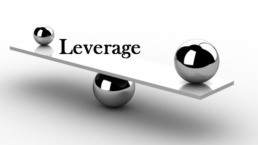International Buyers Guide
Foreign Ownership
As of April 21, 2017, any individual who is not a Canadian citizen or permanent resident of Canada (including corporations and trusts) is subject to a Non-Resident Speculation Tax of 15% of the purchase price (paid at closing) for properties purchased in Toronto, Brant, Dufferin, Durham, Haldimand, Halton, Hamilton, Kawartha Lakes, Niagara, Northumberland, Peel, Peterborough, Simcoe, Toronto, Waterloo, Wellington and York.
Financing
While Canadian lenders do finance the home purchases of non-residents, they usually require significantly larger down payments. Most of our non-resident clients are required to have a 35% downpayment. Lenders will require you to verify your income and creditworthiness and prove that you can pay the mortgage. Also, mortgage interest rates may be higher than what Canadian residents would pay (though in our experience, they are still very attractive rates). It’s important to connect with a mortgage broker or your financial institution to find out your qualifications.
Taxes
As with any investment, it’s important to contact your accountant to understand fully how the purchase or sale of a property in Canada will affect you from a tax perspective. The following is meant to be a guideline only:
Non-Canadian citizens and non-permanent residents of Canada buying a property in the Toronto region must pay a 15% tax on closing.
When buying a property in Toronto, foreign buyers pay the same land transfer taxes as Canadian residents. First time home buyers who plan to use the purchase as their primary residence may be eligible for land transfer tax rebates.
There are also tax implications for non-residents when selling a property. There are forms, processes, and penalties for not complying with the Canada Revenue Agency (CRA)’s rules.
Insurance
It’s sometimes difficult (and more expensive) for non-residents to obtain insurance for an investment property. Given that proof of home insurance is required to obtain a mortgage, this is an important factor to consider. If you’re looking to buy a Toronto investment property, make sure to get insurance quotes and information before making an offer.
Making an Offer
In this day and age, signing the legal documents to make an offer on a house or condo can be done digitally, and with Skype and Facetime, it’s easy to get the same price advice and information from your REALTOR that you’d get if you were physically in Toronto. Many lenders require a foreign buyer to sign the mortgage paperwork in person (though this can be avoided with an executed Power of Attorney).
Choosing a REALTOR
Look for a real estate agent who has experience selling properties to non-Canadians and can refer you to property managers, lawyers and appropriate lenders for your circumstances. If you’re looking to buy a Toronto property while overseas (vs. during a trip to Toronto) look for a REALTOR who is experienced in previewing properties for absentee clients and who is familiar with the tools and technology (especially video) to ensure a smooth process.
We work with a lot of overseas clients and have perfected a process to video and communicate with our buyers about potential properties to eliminate the need to be physically in Toronto to choose a property to buy. We have a dedicated team of lenders, lawyers, and insurance brokers who help our non-resident Buyers in Toronto.
The Power of Leverage
Did you know that more millionaires are created through real estate than any other form of investment? How do they do it? For starters, they embrace the power of leverage.
Many people hate or fear debt, but by doing so, they are denying themselves one of the greatest resources available to create wealth. Smart investors know that not all debt is bad – it just depends on what you do with it.
Canadian banks have been financing the purchase of real estate for many years, with the ‘security deposit’ being the property itself. In some cases, they have even financed up to 100%. Why? These notoriously conservative institutions are fairly sophisticated in protecting their funds, and they know through experience that there is no better security than real estate for their loans.
The real advantage of having banks behind your initial investment is that you can invest more in the first place, enabling real estate to produce higher eventual returns than other forms of investment.
Using leverage to finance your investments is one of the key strategies for maximizing your returns. Leverage can substantially reduce the time required to reach your financial goals. For example, investing $20,000 in a GIC that has an interest rate of 2% per annum would yield a return of $400 per year. If you were to take that same $20,000 and use it as leverage to purchase a $100,000 property, assuming the same 2% growth on your new investment value of $100,000, you would get a gross return of $2,000. Which would you prefer?
This is just the beginning of building your real estate portfolio. In the future, you can refinance and leverage the built-up equity into a down payment to finance other properties, thus starting the cycle over again as your equity continues to rise.
Another advantage of only putting down the minimum down payment is that the interest on the mortgage for your income property can be deducted from your taxes. If you put 25% down on a rental property, the bank finances 75%, which means much better returns than paying in cash. Using the lowest down payment and longest financing terms should keep cash flow steady as you build equity.
Now more than ever, investors are taking advantage of the cheap cost of money to build their real estate portfolios. The beauty of real estate and leverage is that the tenant pays off your mortgage for you, eventually leaving you with a mortgage-free property that will continue to generate cash flow. Can you imagine if you owned 10 properties with the mortgage paid off and the tenants paying you $1,000 rent each month? That’s $10,000 a month of passive income coming to you forever. Smart investors are achieving this because they’ve taken the time to learn how to use the power of leverage.
Mortgage Appraisals

In Toronto, the real estate market has been HOT. With homes being sold at record prices, banks are doing more appraisals to protect themselves. You might have offered to purchase a home for $1 million dollars but that home is really worth $900,000. Banks would have a lot to lose if you default in payments. The lenders want to make sure that the money being lend to you is protected and appraisals are usually the way to do it.
Lenders would send in an appraiser after an offer to purchase has been accepted, but before the mortgage is advanced and the Buyer takes possession. The appraiser will physically go to the house and compare it to recent sales in the surrounding neighbourhood.
There are situations when the appraiser does not think the home is worth what the buyer and seller agreed what it was worth. In this situation, the buyer would have 2 options:
- Find another lender who sends in another appraiser.
- Put in a larger down payment.


